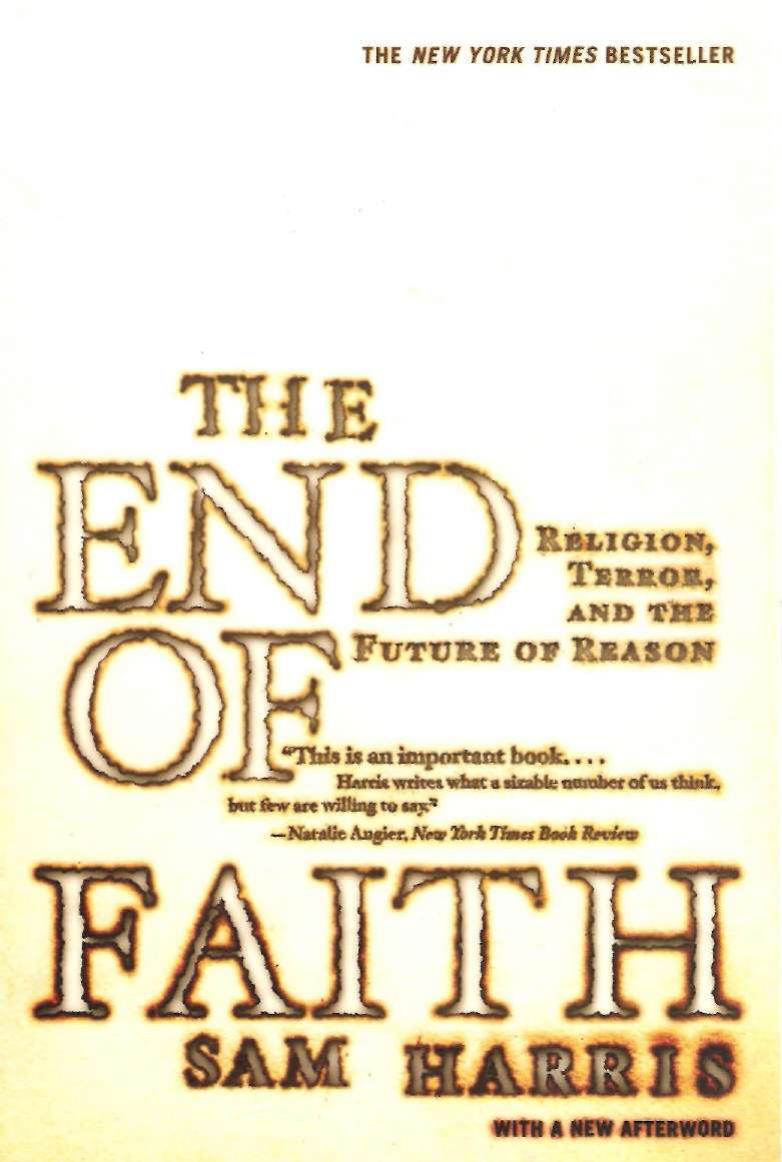The End of Faith: Religion, Terror, and the Future of Reason by Sam Harris

Author:Sam Harris [Harris, Sam]
Language: eng
Format: epub, azw3, mobi, pdf
Tags: Christianity, Islam, Politics, Religion, Science
ISBN: 9780393327656
Google: XP_86itwp2IC
Amazon: 0393327655
Publisher: W. W. Norton
Published: 2013-01-28T11:00:00+00:00
Consciousness
Like Descartes, most of us begin these inquiries as thinkers, condemned by the terms of our subjectivity to maneuver in a world that appears to be other than what we are. Descartes accentuated this dichotomy by declaring that two substances were to be found in God’s universe: matter and spirit. For most of us, a dualism of this sort is more or less a matter of common sense (though the term “spirit” seems rather majestic, given how our minds generally comport themselves). As science has turned its reifying light upon the mysteries of the human mind, however, Descartes’ dualism (along with our own “folk psychology”) has come in for some rough treatment. Bolstered by the undeniable successes of three centuries of purely physical research, many philosophers and scientists now reject Descartes’ separation of mind and body, spirit and matter, as the concession to Christian piety that it surely was, and imagine that they have thereby erased the conceptual gulf between consciousness and the physical world.
In the last chapter we saw that our beliefs about consciousness are intimately linked to our ethics. They also happen to have a direct bearing upon our view of death. Most scientists consider themselves physicalists; this means, among other things, that they believe that our mental and spiritual lives are wholly dependent upon the workings of our brains. On this account, when the brain dies, the stream of our being must come to an end. Once the lamps of neural activity have been extinguished, there will be nothing left to survive. Indeed, many scientists purvey this conviction as though it were itself a special sacrament, conferring intellectual integrity upon any man, woman, or child who is man enough to swallow it.
But the truth is that we simply do not know what happens after death. While there is much to be said against a naive conception of a soul that is independent of the brain,3 the place of consciousness in the natural world is very much an open question. The idea that brains produce consciousness is little more than an article of faith among scientists at present, and there are many reasons to believe that the methods of science will be insufficient to either prove or disprove it.
Inevitably, scientists treat consciousness as a mere attribute of certain large-brained animals. The problem, however, is that nothing about a brain, when surveyed as a physical system, declares it to be a bearer of that peculiar, interior dimension that each of us experiences as consciousness in his own case. Every paradigm that attempts to shed light upon the frontier between consciousness and unconsciousness, searching for the physical difference that makes the phenomenal one, relies upon subjective reports to signal that an experimental stimulus has been observed.4 The operational definition of consciousness, therefore, is reportability. But consciousness and reportability are not the same. Is a starfish conscious? No science that conflates consciousness with reportability will deliver an answer to this question. To look for consciousness in the world on the basis of its outward signs is the only thing that we can do.
Download
The End of Faith: Religion, Terror, and the Future of Reason by Sam Harris.epub
The End of Faith: Religion, Terror, and the Future of Reason by Sam Harris.azw3
The End of Faith: Religion, Terror, and the Future of Reason by Sam Harris.mobi
The End of Faith: Religion, Terror, and the Future of Reason by Sam Harris.pdf
This site does not store any files on its server. We only index and link to content provided by other sites. Please contact the content providers to delete copyright contents if any and email us, we'll remove relevant links or contents immediately.
| Deconstruction | Existentialism |
| Humanism | Phenomenology |
| Pragmatism | Rationalism |
| Structuralism | Transcendentalism |
| Utilitarianism |
The remains of the day by Kazuo Ishiguro(7551)
Tools of Titans by Timothy Ferriss(6947)
The Black Swan by Nassim Nicholas Taleb(6191)
Inner Engineering: A Yogi's Guide to Joy by Sadhguru(5897)
Giovanni's Room by James Baldwin(5878)
The Way of Zen by Alan W. Watts(5800)
The Six Wives Of Henry VIII (WOMEN IN HISTORY) by Fraser Antonia(4790)
The Power of Now: A Guide to Spiritual Enlightenment by Eckhart Tolle(4755)
Astrophysics for People in a Hurry by Neil DeGrasse Tyson(4620)
Asking the Right Questions: A Guide to Critical Thinking by M. Neil Browne & Stuart M. Keeley(4576)
12 Rules for Life by Jordan B. Peterson(3734)
The Ethical Slut by Janet W. Hardy(3503)
Skin in the Game by Nassim Nicholas Taleb(3460)
Housekeeping by Marilynne Robinson(3401)
The Art of Happiness by The Dalai Lama(3384)
Double Down (Diary of a Wimpy Kid Book 11) by Jeff Kinney(3272)
Skin in the Game: Hidden Asymmetries in Daily Life by Nassim Nicholas Taleb(3264)
Walking by Henry David Thoreau(3234)
12 Rules for Life: An Antidote to Chaos by Jordan B. Peterson(3202)
